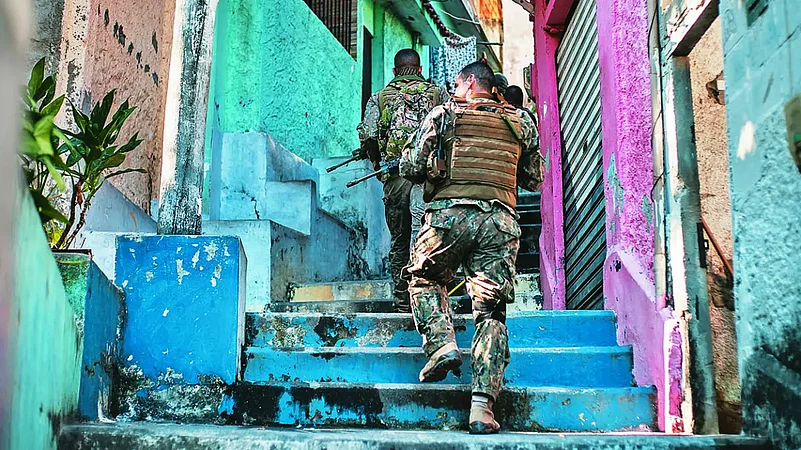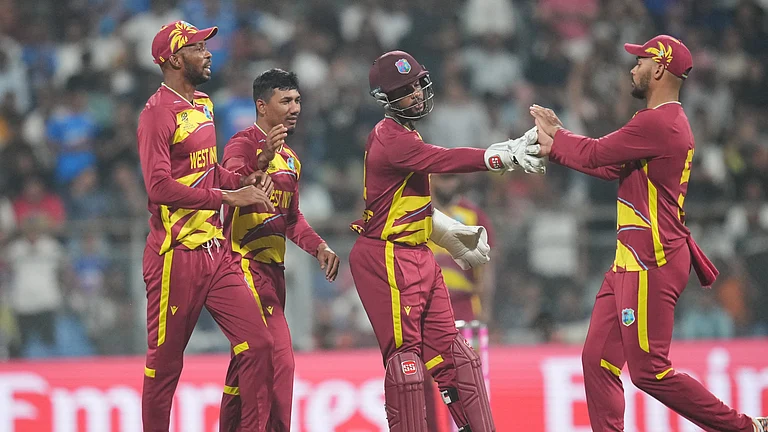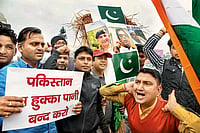The killing of civilians by the police under questionable circumstances—police encounters as they are generally called—happens in several countries. In the US, according to The Economist, police kill about 1,000 people a year. “No other rich country comes close.” The statistics of poorer countries are worse. In El Salvador, police are 22 times deadlier than the US. In Rio de Janeiro (Brazil), cops killed more people in 2017 than all of America’s police. In the Philippines, the police had a license to kill all those involved in drug peddling. In Balochistan (Pakistan), people are killed every day with tacit approval of the state government. In Nigeria, according to a human rights activist, “police brutality is as common as water”.
This is, however, not to say that such police encounters are legitimate or justified. In India, Article 21 of the Constitution clearly says that “no person shall be deprived of his life or personal liberty except according to procedure established by law”. India is also a party to the International Covenant on Civil and Political Rights, whose Article 6 states that “every human being has the inherent right to life, and this right shall be protected by law”.
The hard fact nevertheless is that questionable encounters do take place in India. According to the Union home ministry, during the period between January 1, 2017 and January 31, 2022, there were a total of 655 police encounters. Chhattisgarh had the highest number (191), followed by Uttar Pradesh (117), Assam (50), Jharkhand (49), Odisha (36), Jammu and Kashmir (35) and Maharashtra (26).
In India, such encounters take place generally in states that are affected by terrorism, insurgency or separatist movements, or those where criminal syndicates or mafia groups are active. The State, desperate to tackle terrorist offences, or to quell an insurgency, or put down organised crime, gives a long rope to security forces, which at times cross the Lakshman Rekha of the law. In the recent past, it has been noticed that some state governments are taking recourse to severe measures in dealing with the mafia and rabid communal elements. Bulldozers are used to raze their houses, while their ill-gotten property is confiscated.
ALSO READ: Fake Encounters In India: Laws, Flaws & Fear

What is particularly worrisome in this context are “fake” encounters or extrajudicial killings. In December 2019, Telangana Police shot dead four men accused of gang rape and burning to death a veterinarian in Hyderabad. Police took the plea that the accused attacked their party when they had taken them to the crime scene to reconstruct the sequence of events and recover the articles of the deceased. This was, however, turned down by Justice V.S. Sirpurkar, who conducted an inquiry into the incident and found the police version concocted, and therefore unbelievable. The commission recommended that all 10 cops involved be tried for murder and destruction of evidence in furtherance of common intention. Significantly, soon after the encounter, the killings of the accused were welcomed by large sections of people who distributed sweets and feted the policemen. There were lakhs of tweets with hashtags supporting Hyderabad Police.
The question is: why do citizens support such incidents of instant justice? Fake encounters actually represent people’s loss of faith in the country’s criminal justice system. It is common knowledge that cases drag on for decades and that criminals with money power or political clout are able to influence the system and interminably delay the delivery of justice. It took 40 years to convict the killers of L.N. Mishra, the then Railways minister. In the Nirbhaya case, the fast-track court took more than six years to sentence the accused, and even after that, they kept on dodging the gallows by some legal jugglery or the other.
The Union minister of law and justice placed in the Rajya Sabha on July 21 figures of cases pending in courts across the country. These are staggering: 72,062 in the Supreme Court, 59,45,709 in high courts, and 4,19,79,353 in district and subordinate courts. Data from the National Crime Records Bureau (NCRB) for 2020 on crimes involving rape or gang-rape followed by murder, show a pendency of 48.8 per cent with the police, and 96.9 per cent with the courts. Long-drawn trials erode the confidence of the people in the criminal justice system of the country.
Extrajudicial killings take place mostly under political pressure or that of public opinion. The two, of course, quite often overlap. At the start of my career, I was dismayed to see the state minister for home in UP, going from district to district and preparing, in consultation with district authorities, a list of criminals who were to be “dispatched”. Not much has changed since then. The Karnataka higher education minister, Ashwath Narayan, made a shocking statement on July 29 that the state government was ready for encounters to maintain law and order. It amounted to saying that there would be state-sponsored extrajudicial killings.
Policemen are not assassins or murderers by nature. It is just that they are quite often misused and exploited to carry out the dirty job of those in power. In Punjab, after terrorism had been brought under control, about 2,500 writ petitions were filed in the Supreme Court and the Punjab and Haryana high court against Punjab police officers, for violations of human rights. As columnist and editor Shekhar Gupta once wrote: “We do not have to condone extrajudicial killings… we simply must ask one question: did the police act on their own, taking the law into their own hands in defiance of civil authority, or were they specifically asked by the government of the day to do so?”
In 1997, the National Human Rights Commission (NHRC) laid down guidelines to be followed in cases of encounter killings. These were further expanded in 2010, mandating that an FIR must be registered and a magisterial inquiry held. The Supreme Court, in PUCL Vs State of Maharashtra (2014), laid down a 16-point guideline as the standard procedure to be followed for “thorough, effective and independent investigation” in cases of deaths in police encounters. These included registration of FIR, independent probe, magisterial inquiry, information to NHRC, report to competent court, message to the next of kin, etc.
The Supreme Court has, in several cases, criticised the extrajudicial killings of criminals by police. In 2011, in Prakash Kadam Vs Ram Prasad Vishwa, it said that if the verdict in an extrajudicial execution went against the policemen on trial, they must be given the death sentence. In 2012, in Om Prakash Vs State of Jharkhand, the apex court held that extrajudicial killings are not legal under our criminal justice administration, and that these should be treated as state-sponsored terrorism.
Fake encounters or extrajudicial killings are a crime. We must endeavour to bring their number down to zero. At any point of time, as the Sirpurkar Commission said, “The rule of law must prevail” and that “punishment for crime has to be only by the procedure established by law”. The grim reality, however, is that we would be able to achieve that objective only if we reform the police, improve the prosecution system and ensure timely delivery of justice.
(This appeared in the print edition as "Cops Gone ‘Wild’")
(Views expressed are personal)
Prakash Singh was a BSF Director General, and DGP of UP & Assam

























